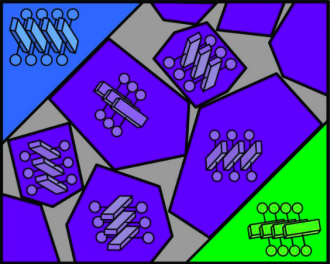 Scientists at Berkeley National Laboratory claim to have solved a problem associated with organic semiconductors.
Scientists at Berkeley National Laboratory claim to have solved a problem associated with organic semiconductors.Organic semiconductors include light emitting diodes (LEDs), field effect transistors (FETs) and photovoltaic cells used in solar panels.
Researchers know that performance problems occur within organic semiconductor thin films but were unsure of the cause.
Now they appear to have figured it out, using a type of microscopy to study interfaces in a solution organic semiconductor.
Naomi Ginsberg at Berkeley and her colleagues said that random nanocristallites get trapped in the interface during solution casting, hindering charge carriers “a bit like debris on a motorway”.
The methodology will help manufacturers to predict affordable solution processing and maximise charge carrier mobility.
The end result will be better performance of products based on organic semiconductor processes.





